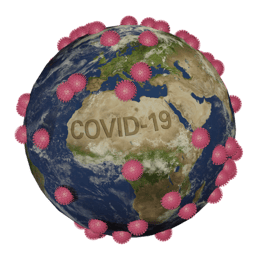Far from a ‘Cruella De Vil’: misconceptions about science editors
Published in Ecology & Evolution

Been there, gotten that
We’ve all received those emails thanking us for submission, apologizing for not being more positive, and hoping we consider the journal for future submissions. The whole process is a black box, leaving many academics, including myself, to feel that it is perhaps a game of luck, that if the stars lined up somehow and the editor is in a good mood that day, something clicked, and the paper is sent out for review. Phrases I often heard as a student or a postdoc included “not fair”, “they didn’t get it”, “they just didn’t like it”, etc. It is therefore no surprise for the rise of the idea of the ‘Cruella De Vil’ editor.
As I decided to transition into the publishing world, currently as the Locum Associate Editor for Communications Biology, I went through several culture shocks. The points below reflect the editorial processes at Communications Biology and other Nature Research journals that surprised me.
- Editors try to help researchers as much as they can. I heard stories on how much time is spent to try to get the best reviewer match or to bridge communication gaps between reviewers and authors. Editors consult with other editors when they value the findings from a manuscript, but find it to be out of scope for their journal and try to find and make the transition to another journal easier.
- Editors don’t always go with what reviewers recommend. In other words, a reviewer might ask for several additional experiments, some of which are not so vital for the novel ‘take home message’ that is put forth. In that case, the editor may override certain recommendations from the reviewers.
- Editors also have their own peer-review. When a primary editor gets assigned a manuscript, s/he will read it in detail, write a report that summarizes the methods and findings, and provide a rationale for the editorial decision to reject the manuscript, to send it out/back for review, or to accept it. This report is circulated to at least one other editor, who in turn will agree or disagree with the decision. In Communications Biology, the editorial decision prioritizes novelty which is confirmed by performing an editorial research. If novelty is limited, we then ask about the extent that the findings advance the field and stimulates new thinking, it is more likely to be sent out for review. Along the same lines, editors don’t reject a paper if some experiments are lacking, but rather decide on the matter taking into consideration the referees’ feedback on experiments/analyses that will improve the paper.
- Editors get to review papers very promptly. While it takes 1-3 days for an editor to circulate the report and make a decision to send out to review, it may take weeks to successfully secure 3 referees. I was surprised to know about and experience the low rate of acceptance to review a paper, let alone the even lower rate of receiving detailed and helpful reviews. Though most of the reasons are due to conflicts in time and busy schedules, which is not surprising, yet it still kind of is. I feel there is a need to spread awareness on the issue and advocate for providing incentives for faculty/researchers to prioritize reviewing a certain number of papers per year and to mentor trainees about the etiquettes of reviewing manuscripts. To that end, Communications Biology keeps track of exceptional referee feedback and chooses the reviewer of the month based on the quality and quantity of papers reviewed for the journal.
- Finally, editors’ work is not easy, yet it is rewarding. I still remember that first week, my brain on high-alert, absorbing loads of information and being introduced to so many new and super helpful and welcoming faces across the globe. I felt everything was in slow motion as I browsed through the manuscript tracking system. I’d go home, with a drained brain, confused about putting the food in the stove rather than in the fridge, or throwing the fruit while keeping the peels. Nothing serious, just side-effects of small culture shocks. Soon thereafter, I started to enjoy having the opportunity to read about Rhinoceros, Maize, or a novel predictor Bioinformatics approach all in one day, learn from colleagues about ways to improve my reading and decision making rate (tools like Toggl), meet with presidents for one of the biggest scientific associations in the world, and even join the Springer Nature chapter of Toastmasters (a super fun public speaking boot camp).
Today is my one monthiversary, with every week easier than the one before. Although my brain does get tired after a full day of work, it is no longer confused about misplacing things and it is fulfilled to know that it is enriched by the information, the decision making and conflict resolution skills, the people, the team work and the organization as a whole.
Follow the Topic
-
Communications Biology

An open access journal from Nature Portfolio publishing high-quality research, reviews and commentary in all areas of the biological sciences, representing significant advances and bringing new biological insight to a specialized area of research.
Related Collections
With Collections, you can get published faster and increase your visibility.
Forces in Cell Biology
Publishing Model: Open Access
Deadline: Apr 30, 2026
Signalling Pathways of Innate Immunity
Publishing Model: Hybrid
Deadline: May 31, 2026



Please sign in or register for FREE
If you are a registered user on Research Communities by Springer Nature, please sign in
Happy monthiversary, Faten, and thank you so much for sharing this post. I had the chance to meet two of my editors and I am aware of how present and helpful they are. One of them had the titanic task of sending my manuscript to 62 reviewers, none of them interested in the topic (pff, they don't know how awesome macroalgae are). God knows how he did, but he managed to secure me all the reviewers during a conference.
oh thanks a lot for sharing your story here. Spot on! and you are right, Macroalgae are awesome!